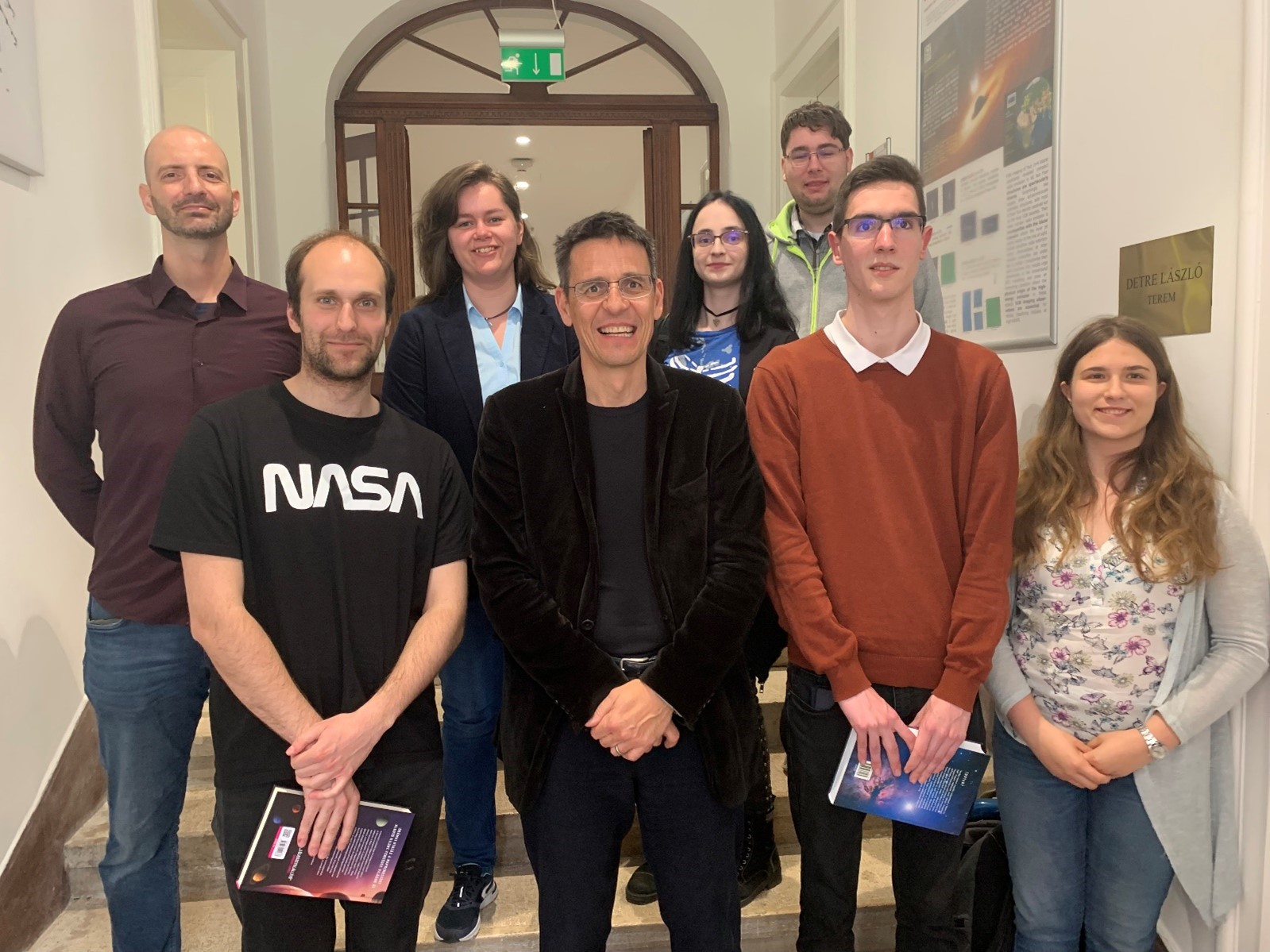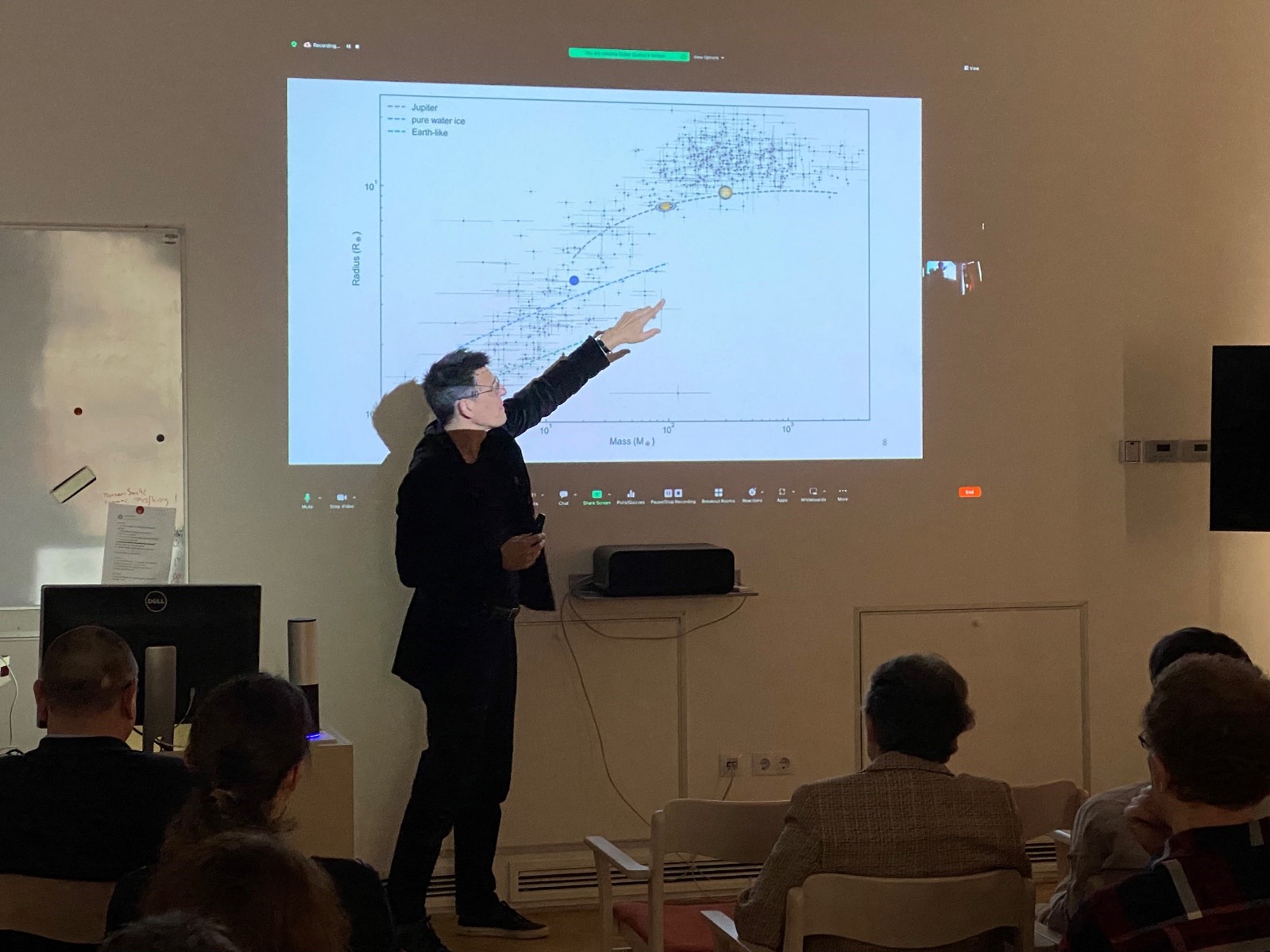Swiss astronomer and astrophysicist Didier Queloz visited the Konkoly Observatory of the ELKH Research Centre for Astronomy and Earth Sciences (CSFK) on May 10. His visit marks a significant milestone as he is the first Nobel laureate researcher to set foot in the institute's premises in its 124-year history.
Didier Queloz was awarded the highest scientific recognition in 2019 for the discovery of the first exoplanet outside the Solar System, known as 51 Pegasi b, orbiting a star similar to our Sun. This groundbreaking discovery, which was part of his PhD work and published in 1995 when he was a young researcher, sparked a revolution in the study of exoplanets. It has since led to the identification of over 5000 exoplanets. Didier Queloz shared the Nobel Prize in Physics with his PhD supervisor, Michel Mayor.
Professor Queloz (University of Cambridge, ETH Zurich) arrived in Hungary as a joint guest of CSFK and the Hungarian Academy of Sciences. On May 8th, he delivered the opening lecture at the General Assembly of HAS. He also participated in a 1.5-hour working meeting with leading researchers at the Konkoly Observatory. Didier Queloz has been collaborating with Hungarian astrophysicist László Kiss, the director general of CSFK, and other Hungarian researchers for over a decade on the Swiss-led Cheops exoplanet research space telescope project. During the meeting, they discussed expanding the existing collaboration opportunities, as studying the formation and properties of distant planets and investigating the possibilities of the emergence of life are focus areas at the CSFK Konkoly Observatory as well.
At his own request, Professor Queloz also met with young researchers, where he shared insights about his career and addressed issues that are of interest to young scientists, answering their questions. They also took group photos with the world-renowned scientist, and several individuals had books signed by him. His kind, helpful, and approachable attitude immediately made him a favorite among the young audience. According to his statement, he wants to give back to the research community as much as he has received in the past, by assisting young researchers and initiating new programs. He consciously and purposefully devotes a portion of his time to these endeavors.

The Nobel laureate astronomer and astrophysicist meeting young researchers at the CSFK Konkoly Observatory
In the second part of his program at the institute, he delivered a seminar lecture titled "Exoplanet Revolution," where he not only reviewed the history and current state of exoplanet research but also discussed his aspiration to investigate the origin of life through the collaborative efforts of astronomers, physicists, chemists, biologists, and researchers in related interdisciplinary fields. Recently, he established a Swiss-English-American virtual institute dedicated to this purpose. Linguists, social scientists, and philosophers are also involved in this project, aiming to bridge the (technical) language gaps between representatives of different research areas and to facilitate the communications and understanding the philosophical consequences of research.

Presentation by Didier Queloz at the CSFK Konkoly Observatory
Didier Queloz is already the third Nobel laureate in 2023 who has been brought to Hungary as part of the Konkoly Nobel Program. In February, the audience had the opportunity to attend the highly successful online lecture by Sir Roger Penrose. In April, Adam Riess, an astrophysicist and one of the recipients of the 2011 Nobel Prize in Physics, visited Budapest to participate in the prestigious IAU Symposium organized by the institute. He also delivered a popular science lecture at the Academy's ceremonial hall. Róbert Szabó, the director of the institute, emphasized that the Konkoly Nobel Program is an important part of the institute's leadership concept. In addition to showcasing the quality of research conducted there and increasing the visibility of the institute, the program provides a unique opportunity and inspiration for talented students at the beginning of their careers through personal meetings with Nobel laureates.
Professor Queloz's seminar presentation can be viewed on the institute's website.